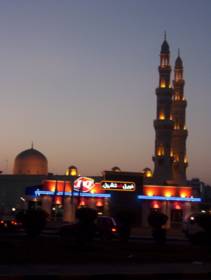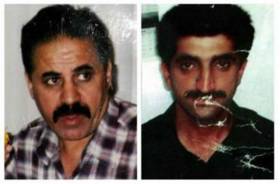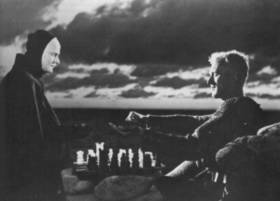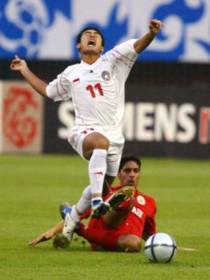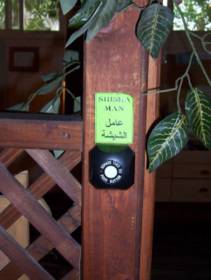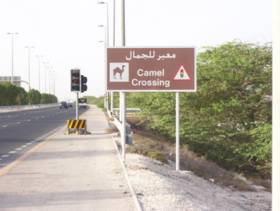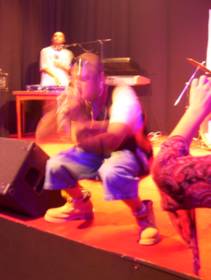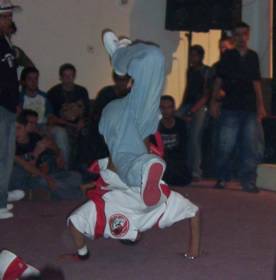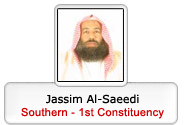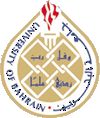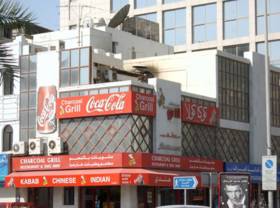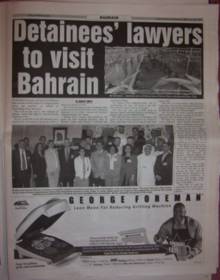Doing something about Iraq
Saturday, July 31, 2004So Bahrain, along with other Arab/Muslim countries, is mulling over the possiblity of sending troops to Iraq. For the sake of the Iraqis, I hope that they do finally decide to get involved.
I was, and still am, very opposed to the US invasion in Iraq. It was a war that did not need to happen and could have been avoided. However, I squarely place the blame for the eventual war upon the Arab and Muslim world, both the leaders and general public. It was due to our inaction with regards to Saddam Hussein that this situation arose.
Let me try and explain. Early last year, when the US began hinting towards the possibility of an invasion, the whole of the Muslim world was immediately up in arms. All of the Muslim leaders began issuing condemnations and disapprovals of any type of military action in Iraq. The Muslim public took to the streets in the thousands to protest against the war and burn effigies of GWB. The Press throughout the Muslim world published daily columns condemning the war. Everyone was so worried about their Arab or Muslim "brothers" in Iraq who would suffer in the event of a war. It seemed as though we cared deeply about the plight of our Iraqi brethren.
But let us put our minds back a few more a years. The year was 1991. The US had just completed its liberation of Kuwait from Saddam. Even if there were any Muslims were unaware of it before, by this time I imagine that everyone knew full well the nature of Saddam Hussein and the Ba'athist regime in Iraq. We were all aware of the fact that Saddam had gassed Kurds in Halabja a few years before. We were all aware that he had brutally put down an uprising by the Shia's in the south. We had all heard stories of his Fedayeen militia that killed live wolves with their bare hands (and had seen the video). We knew of his deranged sons Uday and Qusay, and what they would do to Iraqi football players who did not perform up to standard. We remember reading in the news that Saddam had forgiven his two son-in-laws who had defected to Jordan during the Gulf War of '91, and asked them to return to Baghdad -- when they returned, Saddam had them both shot. We had all heard about the hundreds upon hundreds of Iraqi men who "disappeared" during Saddam's rule. We had all heard about his infamous torture chambers which were used on "our Iraqi brothers". And he invaded a neighbouring country, for God's sake!
By 1991 it was obvious to us all that our beloved "Muslim brothers" in Iraq were suffering greatly at the hands of Saddam. Yet in the twelve years between the second and third Gulf Wars what did the Muslim world do to help to their dear Iraqi brothers get rid of Saddam? Did our leaders issue vocal condemnations of Saddam and demand reforms? Did we take to the streets and protest against the atrocities being committed against the Iraqi people? Did we burn effigies of Saddam? Did our Press publish any columns explaining the need for us to deal with Saddam and the way he has been oppressing our Muslim brothers in Iraq?
We had twelve years to somehow help the cause of the Iraqis we now seem to care so deeply about, but we did nothing. We neither did anything to help them, nor did we say anything to suggest that we want to help them. We were all quite comfortable as we were. Especially Iraq's neighbours in the Gulf. We were too consumed with other things to care about the suffering of Iraqi civilians. But the moment the US started suggesting an invasion we all suddenly began giving a shit about what happens to Iraqis. Where have these people been for the past twelve years?!
Why did we not deal with Saddam ourselves in those twelve years? If we really cared we could have sent delegations of Muslim leaders to speak with him and tell him to change. If he still didn't change (which is probable) we could have provided financial, logistic and political support to the Iraqi opposition movements that wanted to overthrow Saddam. And if this was not feasible we could have at least urged the United Nations to do something. If worst came to worst, maybe even send in an Arab/Muslim-led multinational coalition of troops, with a UN mandate of course, to liberate our Iraqi brothers from Saddam. Even if these ideas were not feasible, or not desirable, we should at least have been discussing amongst ourselves what could be done,... but back then we Muslims didn't care.
Back to today. The US has invaded Iraq (pretty much single-handedly) and finally rid Iraq of Saddam. Sovereignty has (nominally) been handed over to an Iraqi government, but the country still faces a major security crisis. As many analysts have said before, the US military knows how to invade a country, but is not too good at securing it. It is not familiar enough with Iraqi, Arab and Muslim history and culture to be able to understand how to properly interpret the actions of the Iraqis, or how the Iraqis will interpret the actions of the US military. Neither does it have the previous experience of pacifying a hostile local population, that many of the former European colonial powers have.
Arabs and Muslims who claim to care about the plight of Iraqis must now ask themselves "what should we do to help our brothers now?" Right now the most obvious issue to deal with is whether we should send troops to Iraq. We can decide against sending troops so that we don't give the US invasion any implied legitimacy, while the Iraqis suffer. Or, we can forget our pride and send troops to help make Iraq a safer place for civilians. I choose the latter. For twelve years we have been sitting on the sidelines doing nothing. It is now time we do something to support the dire situation of Iraqis. Being more familiar with the culture than most US troops, I imagine that Muslim/Arab will be welcomed by Iraqi civilians (except the terrorist kind, of course). Muslim countries may even have some leverage to set some conditions since the US is really looking for support. The Muslim countries sending troops could demand that they be privy to all of the military information, and that they have some form of influence over the decision-making of the reconstruction effort.
It is now irrelevant whether you supported the US invasion or not. The reality is that it happened, and is in the past. We must figure out what we can do now to help Iraqis if we really care about them. If you are suspicious of the US motives or ability in Iraq, then this is the time get involved and make sure we have a say in what happens there. Picking our noses doing nothing will only ensure that the US military will continue to do things their own way. It's already thirteen years late, but we still can, and must, help.


